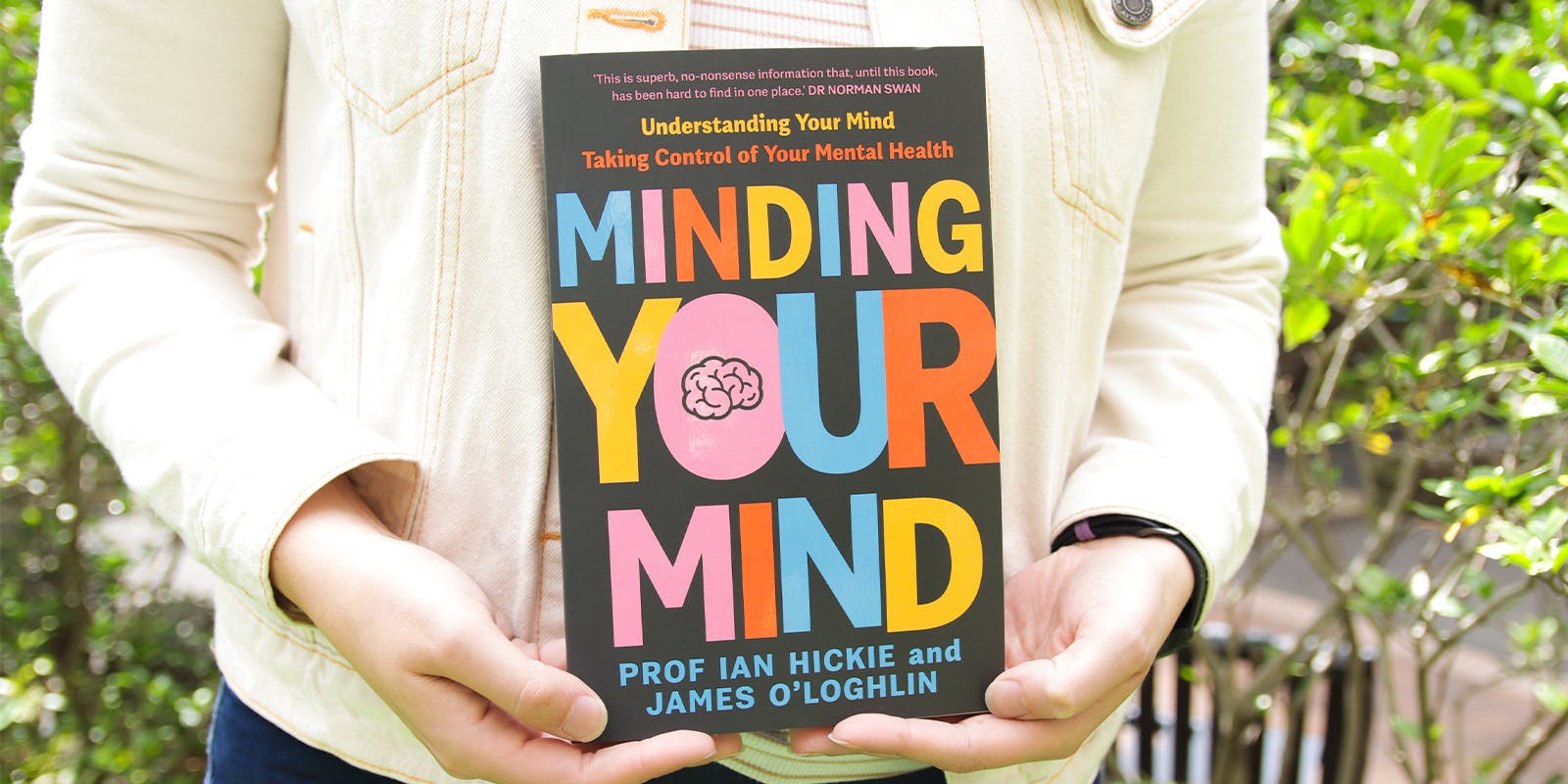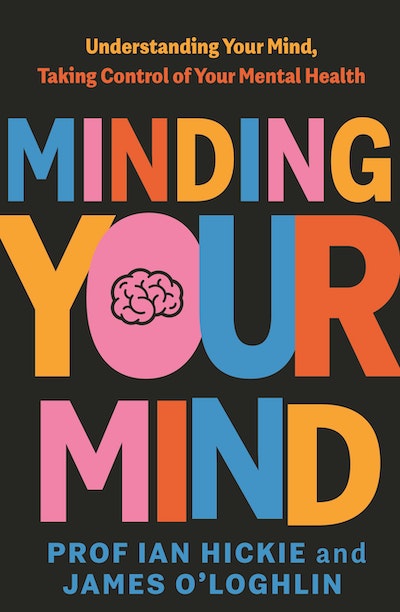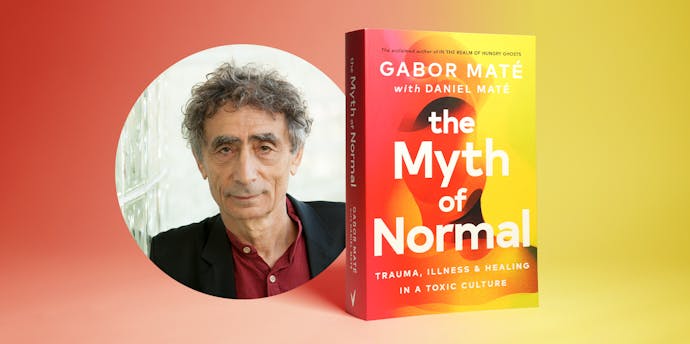We spoke with James O’Loghlin and Ian Hickie about mental health and their new book, Minding Your Mind.
It’s fair to say that COVID-19 was hard for all of us.
From cancelled events to new work arrangements and mandated lockdowns, people around the world were forced to make changes. While each person's circumstances were unique, there were some common themes in what we collectively experienced.
Some were trapped in lockdown alone, forced to bide their time in solitude. Others became default teachers, having to monitor their kids’ schoolwork and class participation in slapdash virtual classrooms. Many people had to learn to live with family or housemates in a new way – in a scenario where there was quite literally no alone time.
Fighting couples couldn’t simply ‘take a break’, children were robbed of independence from their parents, and essential workers had to brave the unknown, placing themselves in potential danger to ensure the safety of the masses.
While we’ve now made it to ‘the new normal', an event as impactful as this doesn’t just fade away without leaving a mark.
In the wake of the coronavirus pandemic, mental health problems have been on the rise. Anxiety, depression, addiction – all of these have spiked, with modelling suggesting that we’ll continue to experience a ‘second wave’ of mental health problems from the pandemic for the next five years and beyond.
But while all of this sounds bleak, there is a silver lining.
Thanks to COVID-19, conversations around mental health and well-being have become more prevalent. In addition to ongoing research on mental health and how individuals can better support themselves and their loved ones, people have become more open to discussing their hardships.
Seeing an opportunity to bring these conversations to the forefront, Professor Ian Hickie and author James O’Loghlin joined forces to spread awareness about mental health. Thus, the podcast Minding Your Mind was born, and now there’s a new book on the horizon – perfect for anyone who wants the best for their mental well-being, but might not know how to get there.
Minding Your Mind is a must-read for anyone who wants to know a little bit more about how their brain works. Having been writing in direct response to the coronavirus pandemic, it is a fantastic roadmap for how we can all move forward.
About the authors
Strictly speaking, James O’Louglin and Ian Hickie come from two different worlds.
James is best known for his writing, public speaking, and television and radio hosting. He has written several books and toured the country, giving speeches and entertaining audiences across Australia. He’s been a lawyer, a stand-up comedian, and a media personality. In short, he knows how to captivate and entertain an audience.
On the other hand, Ian works in the domains of academia and psychiatry. He is one of Australia's leading advocates for mental health and the Co-Director of Health and Policy at The University of Sydney’s Brain and Mind Centre. On top of that, he was the first CEO of Beyond Blue and an inaugural commissioner on Australia’s National Mental Health Commission.
While it might seem like an odd pairing, James and Ian have been talking about mental health long before they wrote Minding Your Mind.
‘I met Ian when I was hosting radio shows on ABC and we had him on one night in the early 2000s to talk about something associated with mental health,’ says James. ‘It was really interesting and he was clear, with clear strategies.’
Finding himself fascinated by the workings of the brain, James knew he had to keep the conversation going, and they continued to host a segment on ABC radio all about mental health. When James stopped working at ABC, the show ended – but James and Ian's desire to share this information didn't stop there.
The podcast & the book
While James and Ian had put their radio segment on pause, the prevalence of mental health issues arising as a result of COVID-19 provided the perfect opportunity for the pair to continue their conversation where they’d left off.
After bumping into each other while on holiday, they agreed to start a podcast and began recording the Minding Your Mind podcast at the beginning of 2021. ‘The Covid period was a very good period to actually get out and talk about these conversations we’d been having for some time and actually start the podcast as a way of communicating about that,’ says Ian. ‘A lot of the early episodes were devoted to issues around these fundamentals, but also around the context of Covid.’

Familiar with Ian’s background, James was keen to work together to raise awareness and give people strategies to improve their mental health. It's not just ‘for people who are unwell,’ he insists. The approaches they discussed on the podcast – and eventually featured in the book – are aimed at helping everyone.
When a publisher approached the pair, they agreed that a book was a great idea. '[The podcast] kind of lends itself to a book,’ James explains. ‘Every episode is a chapter, [so] we’ve kind of grouped them thematically, but they don’t have to be in any particular order.’

Split into 3 parts, the book covers the major themes that everyone should know about mental health – as well as more scenario-specific chapters. Part 2, in particular, ‘When Things Go Wrong’ sheds some light on how people can manage any mental health problems that COVID-19 provoked.
Mental health and COVID-19
Ask your close friends and family if they think COVID-19 impacted their mental health, and you’re likely to hear some common answers.
Whether it’s increased anxiety upon returning to work or a lingering depression that snuck up during lockdown, it seems that, anecdotally at least, people are still suffering the consequences of the pandemic.
And the stats say it’s true.
When asked if mental health problems only appear more prevalent due to the increased discussion around them, Ian answers emphatically: ‘No! Something really changed!’
‘The book mentions two very important things,’ he explains. ‘There are two fundamental pillars to our all of mental health and wellbeing.’
- Personal autonomy, and
- Social connection
‘Along comes Covid and puts major dampers on the first – you can’t go out and do what you want. You now have social constraints. But importantly, the second bit, the social connection was banned. You couldn’t touch anyone, hug anyone, kiss anyone, go out with anyone, or see anyone. As a consequence of that, many people experienced psychological distress in various forms. Anxiety, depression, substance abuse. Alcohol at home went through the roof.’
While this increase in mental health problems might seem disheartening, the benefit is that it has opened up conversations about mental health and well-being.
‘Over the last couple of years – and I think Covid has pushed this – there’s more of an understanding that mental health isn’t a switch,’ says James. ‘It’s more of a spectrum. You’re not mentally ill or you’re fine, you are somewhere on the spectrum. Some days you’re a 6/10 and some days you’re 7.5/10.’
So, what can people do to improve their mental health?
Throughout the various lockdowns across Australia, and even still today, there has been plenty of messaging around taking care of your mental health. There have been entire campaigns dedicated to helping people understand how to support themselves and cope with the impacts of the coronavirus.
You can probably recall the main themes of these public service announcements easily: Eat well, get outdoors, call a friend, and get enough sleep!
And while it's all good advice, in the face of an unprecedented challenge like COVID-19, Ian and James believe that this generic guidance was inadequate at actually providing people with the proper tools they needed.
‘A lot of that stuff frankly is very patronising. You should exercise more, you should sleep better. . . as if you can just do this one thing and it’ll work [to solve all of your mental health problems].’ Says Ian. ‘It’s also blaming because it suggests that you’re obviously in that situation because you don’t do those things.’
So instead of recommending lifestyle changes – ‘I hate the conversation about lifestyle!’ says Ian – the pair chose a different approach.
‘What we’ve tried to do is load the book up with specific things,’ James explains. ‘There’s a lot of stuff in there for people who have a mental illness or a mental health issue. There’s a lot of stuff in there [for] people. . . who are just feeling a bit more stressed at the moment and need to work out how to get through that.'
While it’s tempting to seek a one-size-fits-all solution, the reality is that mental health is much more complicated than that. We don’t always know what causes mental health problems like anxiety and depression, but for Ian, that need not be an issue.
‘It’s unlikely that we know the total reason why [a mental health issue arises] because, at the individual level, that’s quite complicated.’
Instead, he asks a simpler question. ‘What do you need to know to manage the problem now and in the future?’
There are several strategies you can try to improve mental health, but it all comes down to finding what works for you, your unique situation and your unique brain. Depending on where you fall on the spectrum, approaches including exposure, mindfulness, cognitive behavioural strategies, and in some instances, medication can all play a part in reducing anxiety.
One last word
When asked if there is one thing that Ian, as a brain health expert, thinks everyone should know, his answer is surprisingly straightforward.
‘We are complex physical beings in a social world. And it’s the relationship between those that deliver mental health and wellbeing, individually and collectively.’
Minding your mind is just one piece of a much larger puzzle, but it’s an essential first step in understanding your brain better. Minding Your Mind provides plenty of insight, information, and evidence-based strategies that are easily-digestible, whether you have an understanding of psychiatry or not.
Want to learn more about your mind? Check out Minding Your Mind, coming 18 October 2022.













